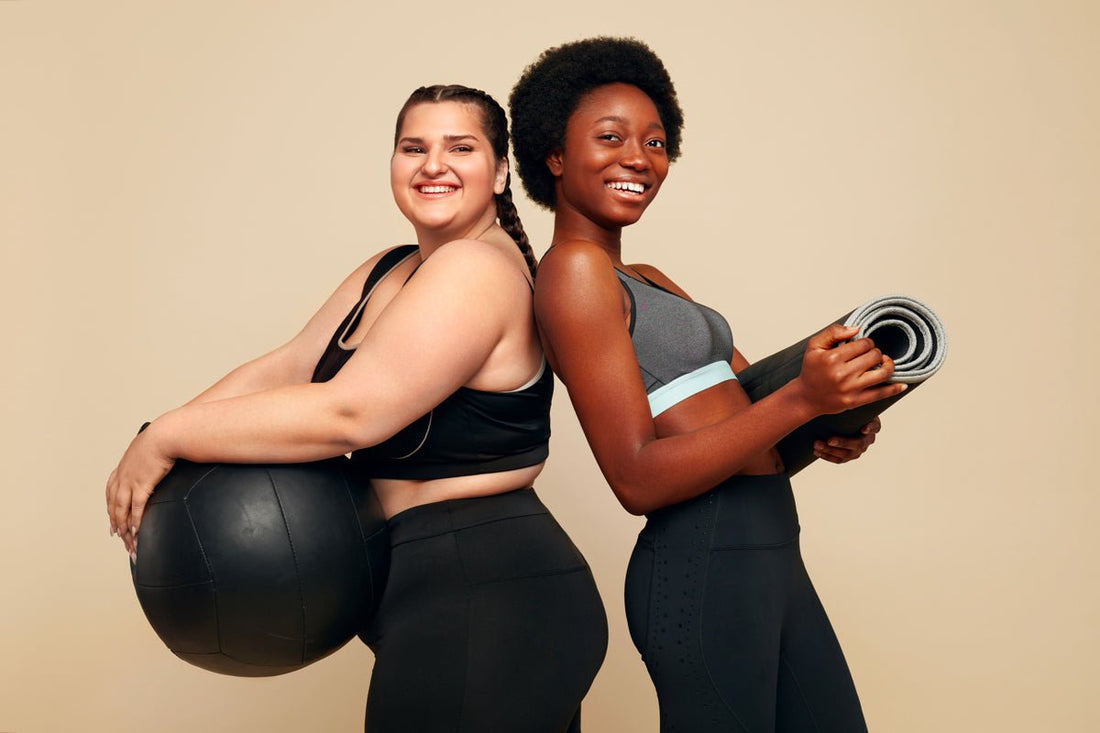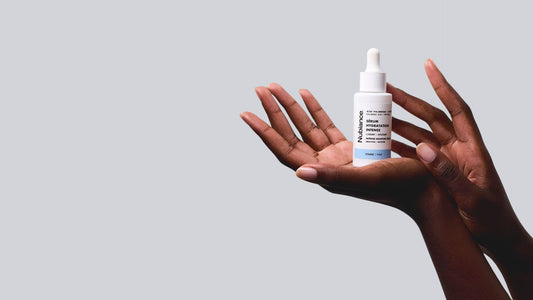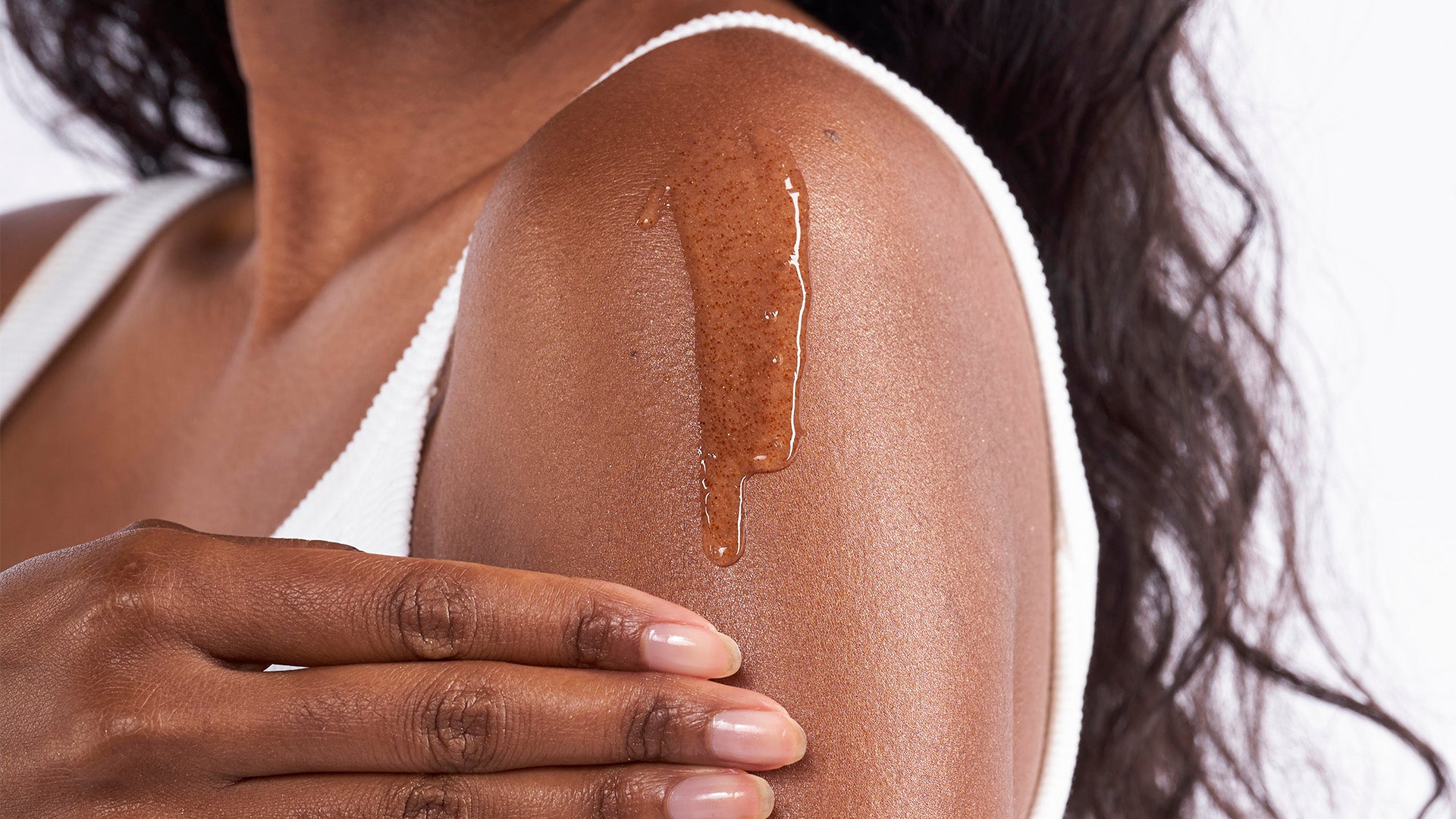
Acne and diet: the impact of sport on the skin
Partager
What place does sport have in your life? What impact does it have on your skin?
Do you know that our life choices can be read on our face? Exercising regularly would have amazing effects on the aging process in general, and on the skin in particular.
If you want to know why sport makes us beautiful, read this article!
Sport to fight against free radicals
Free radicals are responsible for the accelerated appearance of many skin damages, resulting in the appearance of wrinkles and other signs of aging.
Free radicals are highly unstable and incomplete molecules naturally generated by the human body. To stabilize themselves, free radicals break down neighboring molecules which in turn become free radicals.
In the body, these molecules are naturally neutralized by cellular defense and detoxification mechanisms. That said, it happens that external attacks significantly increase their number. The cells are then no longer able to neutralize them all.
This phenomenon of degradation of the structures of the skin by free radicals spreads in a chain reaction and results in premature aging of the skin and the appearance of fine lines, wrinkles and other signs of aging.
Other external factors lead to the formation of free radicals:
● Pollution,
● Exposure to UV and daylight,
● The consumption of tobacco and alcohol,
● Chronic stress,
● Certain drug treatments,
● Diets (overconsumption of meat or saturated fats),
● Heating, air conditioning
Our body has a “natural shield” to neutralize free radicals: these are natural antioxidants such as enzymes, and vitamins such as vitamin E and C.
When the amount of free radicals is too high, the natural defense mechanisms are no longer able to neutralize them all. Free radicals will thus degrade components essential to the maintenance of young and healthy skin (collagen fibers, elastin, hyaluronic acid, cellular lipids, DNA, etc.), but if they are produced in excess, this defense is no longer enough; then the cells oxidize! This phenomenon is called oxidative stress.
This phenomenon accelerates the aging of our cells and causes irreversible damage to our organs and our DNA. It would be the cause of serious diseases such as cancer, asthma and certain degenerative diseases.
The benefits of sport on the skin
Endurance sports in general, such as triathlons, marathons or cycling races, require increased oxygen consumption to produce the energy necessary for the effort. They are therefore at the origin of a large production of free radicals!
Should we worry about sport if it is at the origin of the production of free radicals, a priori harmful to our body? No, it's the opposite ! It turns out that this production also increases our body's ability to protect itself.
In the long term, physical training would develop our defense system, making it more effective against the oxidative stress mentioned above.
Practicing physical activity while maintaining healthy-looking skin
You should also know that despite its many benefits, physical exercise can present risks for the skin. The main danger if you exercise outdoors is exposure to the sun.
Sunburn increases the risk of cancer and skin aging, erasing any benefits your skin might get from exercise.
So avoid exercising outside during the peak hours of the sun (between 10 a.m. and 4 p.m.)! However, if you must exercise when the sun is at its highest, wear sunscreen! If your skin is naturally oily or prone to acne, choose an oil-free gel or product or opt for a cream with at least SPF 30 protection.
For acne-prone people, the irritation and increased sweating caused by chafing and wearing tight workout clothes can lead to a form of acne called acne mecanica.
The two keys to prevention are to wear clothes that wick away moisture optimally (bras, bras, hats, peaked caps), and to take a shower immediately after exercise. Wearing loose workout clothes can also help!
Make sure your skin is clean before working out to avoid clogged pores, which can lead to acne. Last tip, avoid wearing makeup when you exercise!
After showering and cleansing your face with a gentle cleansing gel, apply a moisturizing cream or soothing powder to prevent skin irritation.
Exercise-related skin problems
Several other skin conditions can be exacerbated by physical activity, including rosacea, eczema, and psoriasis. Be careful, this is not a reason not to exercise!
For rosacea sufferers, the increased body temperature and hot flashes that come with exercise can cause acne breakouts. The best strategy is to exercise in a cool environment.
People with eczema or psoriasis may also experience flare-ups after strenuous activity, usually caused by salt from sweating.
Blood circulation increases skin radiance
Our skin cells are nourished by tiny capillaries located in the inner layers of the skin. When we exercise and our heart rate increases, blood flow drives vitamins, minerals, and oxygen into these capillaries.
Blood and oxygen are essential for all healing, so the best way to get that youthful glow is to increase heart rate and blood circulation!
Sweat and its benefits
Sweat is misunderstood because it is believed to clog pores, but this is not the case.
Sweating is actually how our skin naturally detoxifies itself, and one of the main ways our body has to eliminate toxins.
A sweat session is a kind of steam cleaning for the pores from the inside out!
Be sure to remove your makeup and cleanse yourself thoroughly before hitting the gym so that sweat and bacteria don't get trapped in your pores.
How hormones, stress and exercise contribute to acne
Stop stressing! The benefits of physical exercise go a long way in combating stress-induced hormonal surges. Regular exercise creates healing endorphins which can effectively counteract the damaging effects of cortisol, commonly known as the “stress hormone”.
Cortisol damages the collagen and elastin that hold skin tight, while slowing cell turnover.
When we are stressed, a surge in testosterone leads to the increased production of the sebaceous glands, which increases the risk of bacterial infection in the pores of the skin and causes the formation of pimples and other skin blemishes.
Yoga, meditation, and breath awareness are all great tools for reducing stress. Intense physical exercise is particularly effective in breaking down cortisol in the blood. Regular moderate exercise releases endorphins and serotonin, which have the effect of lowering cortisol levels.
Play sports !
In conclusion, exercise does not cause acne, but poor post-workout hygiene can. Although many acne sufferers go through many treatments before they finally find something that works, the cause of acne is quite simple.
Sebum, a technical term for the oil produced by your skin, can build up in your pores. When it mixes with bacteria and other debris, acne is the inevitable result.
Sweating can be especially bad for your complexion if you wear makeup or sunscreen when you exercise, as these products can mix with sweat and get trapped in your pores.
Likewise, exercising and going straight to bed without washing your face will make your skin more prone to acne.




